Hive Mind: Environmental Studies Students Discover Hidden Complexity of Beekeeping
September 8, 2025
Two students' summer internships at Musante Farm revealed beekeeping involves far more than just honey production
The thought of being surrounded by thousands of buzzing bees would intimidate most people. But for environmental studies students Zach Morin ’25 and Hudson Todd ’26, that intimidation quickly transformed into fascination during summer beekeeping internships at Musante Farm in Dalton, MA.
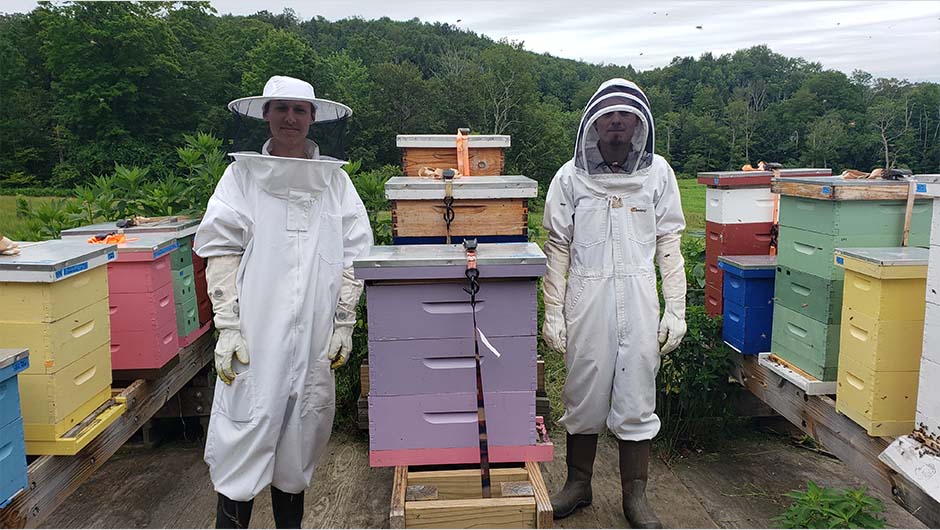
"I didn't have too many expectations because I didn't really know what to expect," Morin admits. "I knew it would be incredibly interesting and engaging, but I was also intimidated."
Todd agrees: "I really did not have many expectations. I wanted to learn more about beekeeping since I had no prior knowledge of the topic."
Both students discovered the opportunity through the same path: a student presentation during Environmental Science seminars. Despite having zero agricultural experience, both seized the chance when their advisors suggested they apply.
What they discovered was a world far more complex than either had imagined. Working alongside Amy Musante, beekeeper, organic farmer, and educator, every day brought new challenges: hive inspections to assess queen presence and colony health, equipment maintenance, varroa mite treatments, data collection, and honey processing for 60-70 colonies.
"There are MANY more responsibilities to beekeeping than I could have imagined," Morin reflects. "I have a newfound respect for Amy and other beekeepers who do this for their careers."
The scope of work surprised both students, but they identified different challenges. For Morin, it was multitasking during hive inspections under time pressure. "Having a hive open for an inspection can put the bees on edge," he explains. "All while we are trying to sort through frames, find the queen, take down data, move heavy boxes carefully."
Todd faced the organizational complexity: "The most challenging part was the number of individual colonies, which makes it difficult to work on a single colony because something more urgent could happen at a different colony." He found that inspections revealed additional problems requiring immediate attention.
Both students developed valuable skills. Morin learned adaptability: "Every day was different. One day we spent the whole day in the apiary in the heat, and the next we spent 11 hours processing honey. I learned to show up and expect anything."
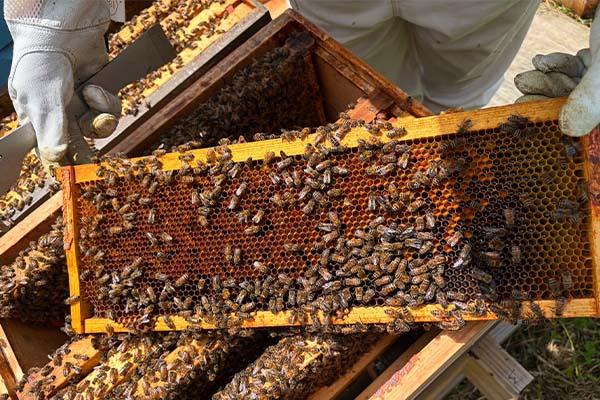
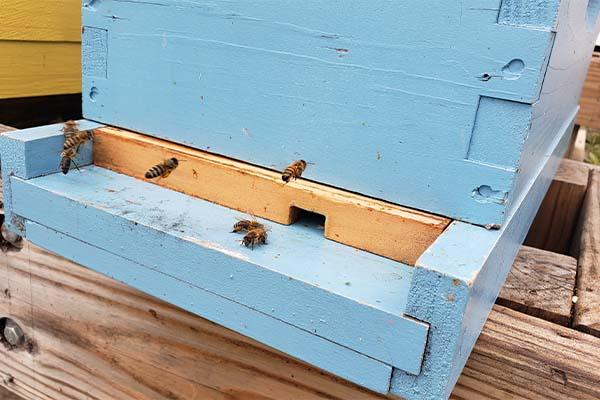
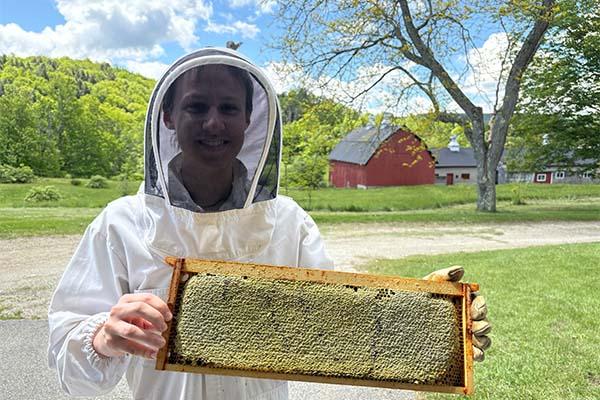
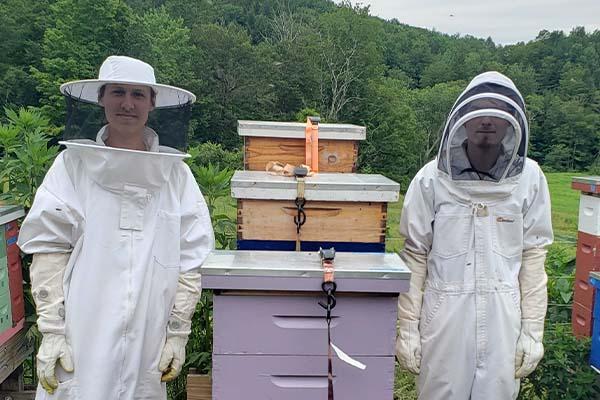
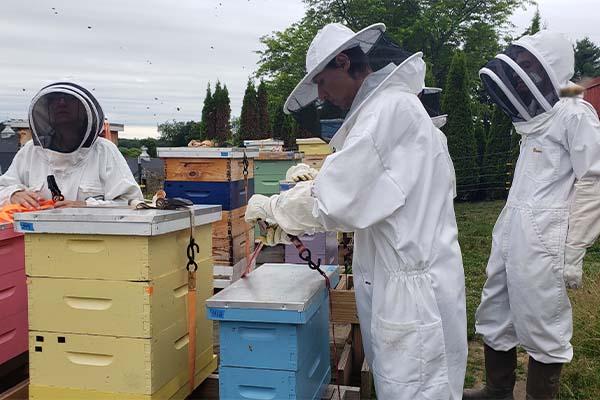
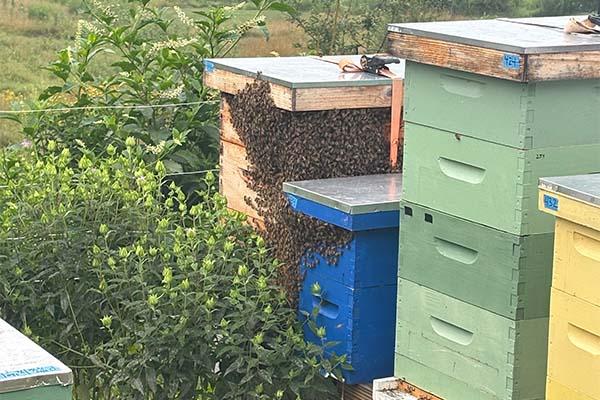
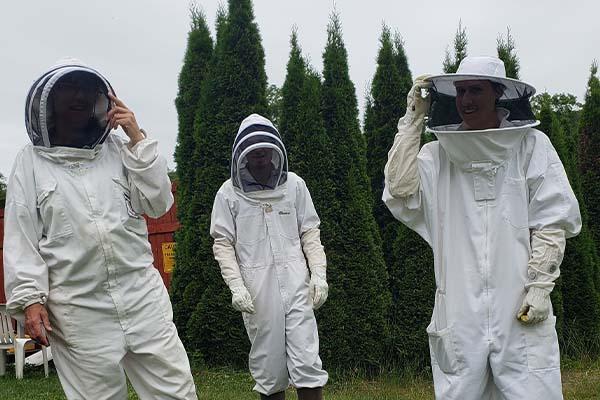
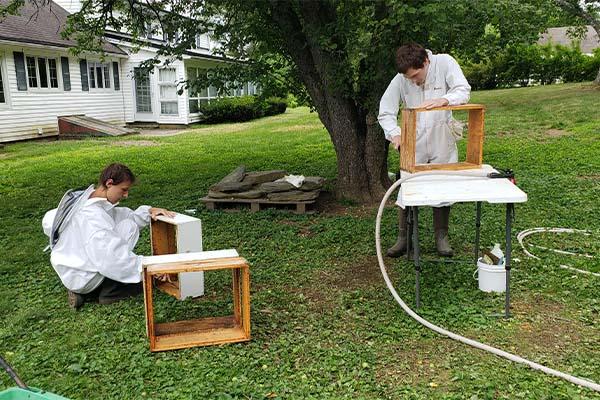
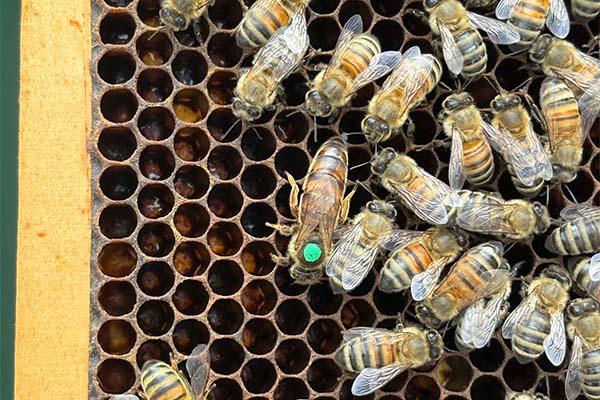
Todd focused on "self-discipline and taking the initiative," along with data collection
skills. "By turning observations into data and inputting it into spreadsheets, I developed
each of the skills needed for that process."
The experience connected directly to their environmental studies coursework. "It provided me with a greater understanding in biology for honeybees, but also other organisms such as parasites, insects, and even the plants that are involved," Morin explains.
What surprised Todd most was discovering bee society's complexity: "The colony as a whole is considered a super organism where an individual bee cannot survive on its own. It is the collective effort of all the individuals within a colony that determines the success of the entire colony."
Perhaps the most memorable aspect of Morin's summer was avoiding bee stings until the very last day. "I managed to go for the entire thing until the very last day I got stung! I currently still have a bump on my head."
Both students offer similar advice to peers considering the internship. "Be open-minded and not get overwhelmed," Morin suggests. "This internship was much more work than I expected, but you get used to it and learn how to do a lot. It can end up being pretty rewarding."
Todd's agrees: "Keep an open mind and focus on the task at hand and try not to be overwhelmed by how much work there is to do."
The internship influenced Todd's future plans, reinforcing his "preference for working with animals in an outdoor setting." He plans to continue beekeeping after college and volunteer at Musante Farm.
Their summer experiences proved that sometimes the most intimidating opportunities
yield the most profound learning, and that the complexity of a bee colony mirrors
the multifaceted nature of environmental science itself.
